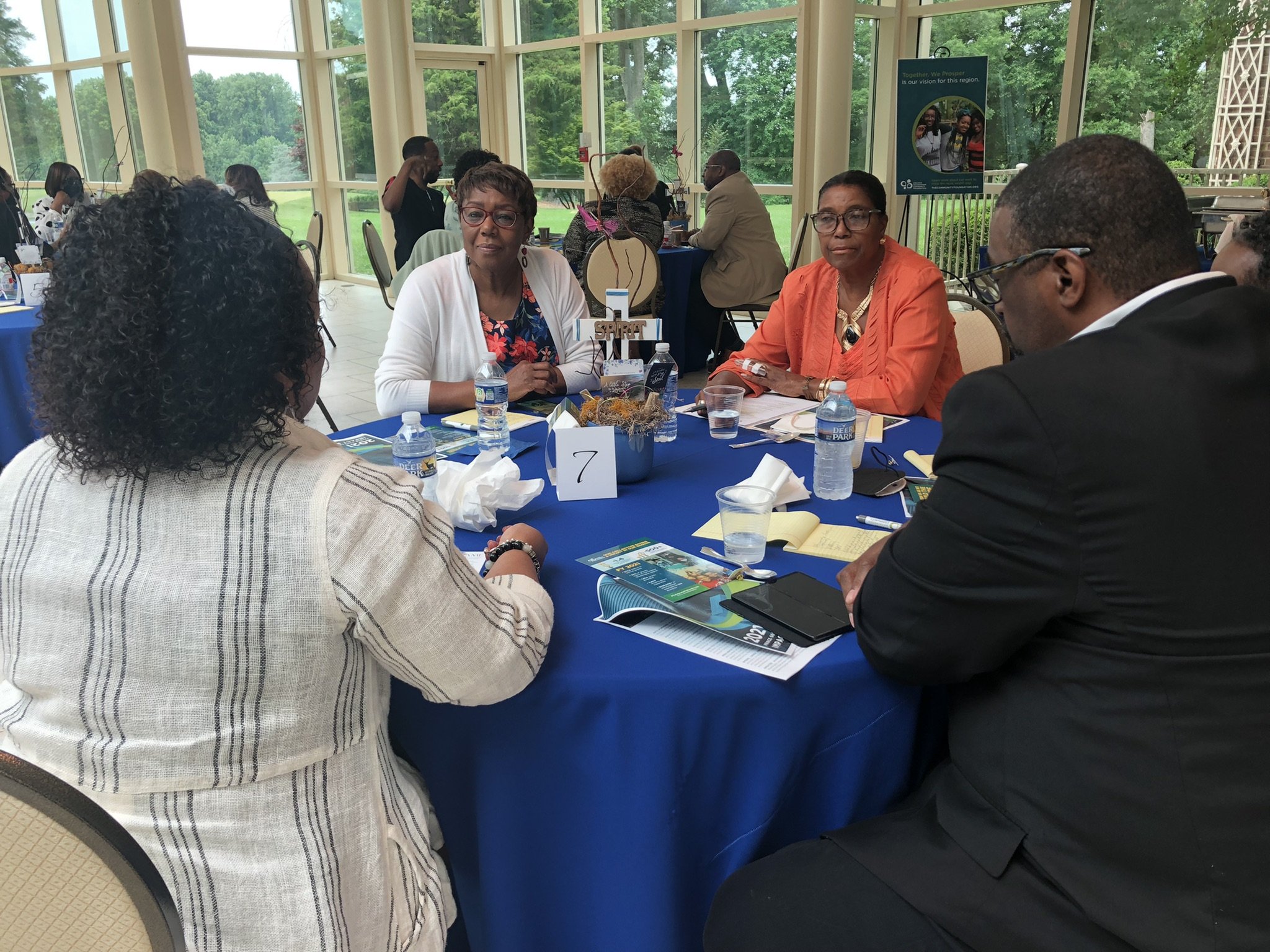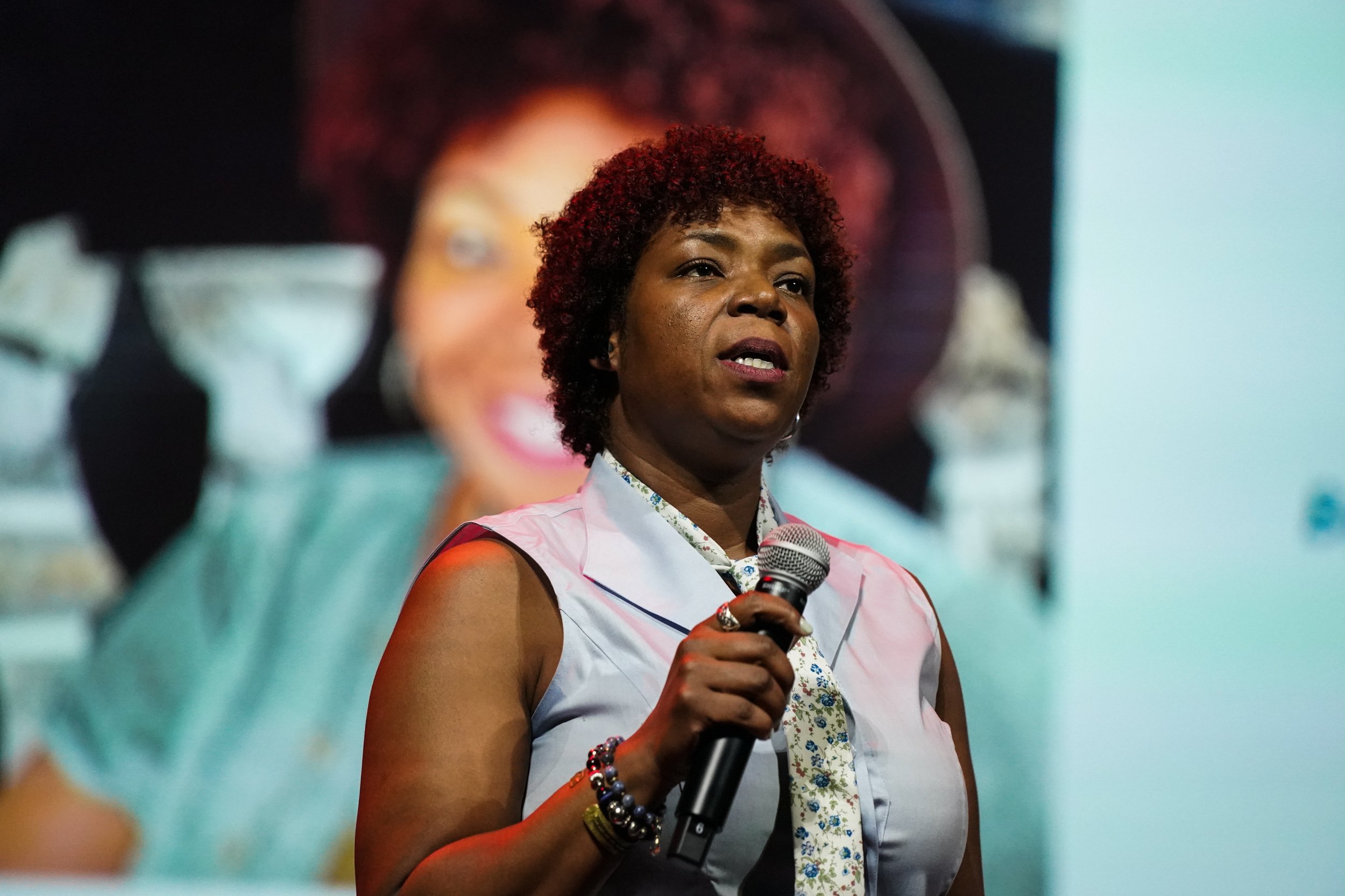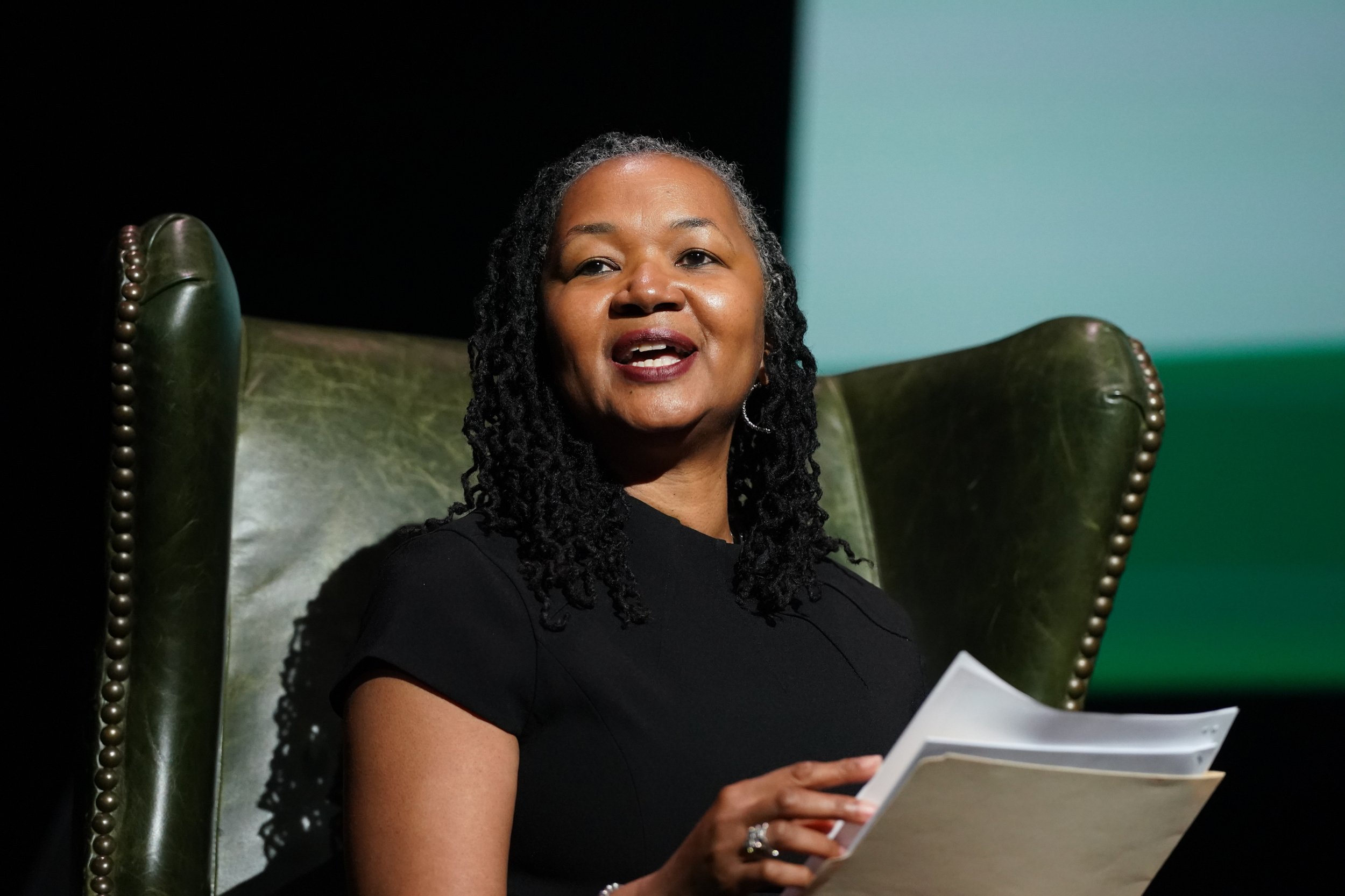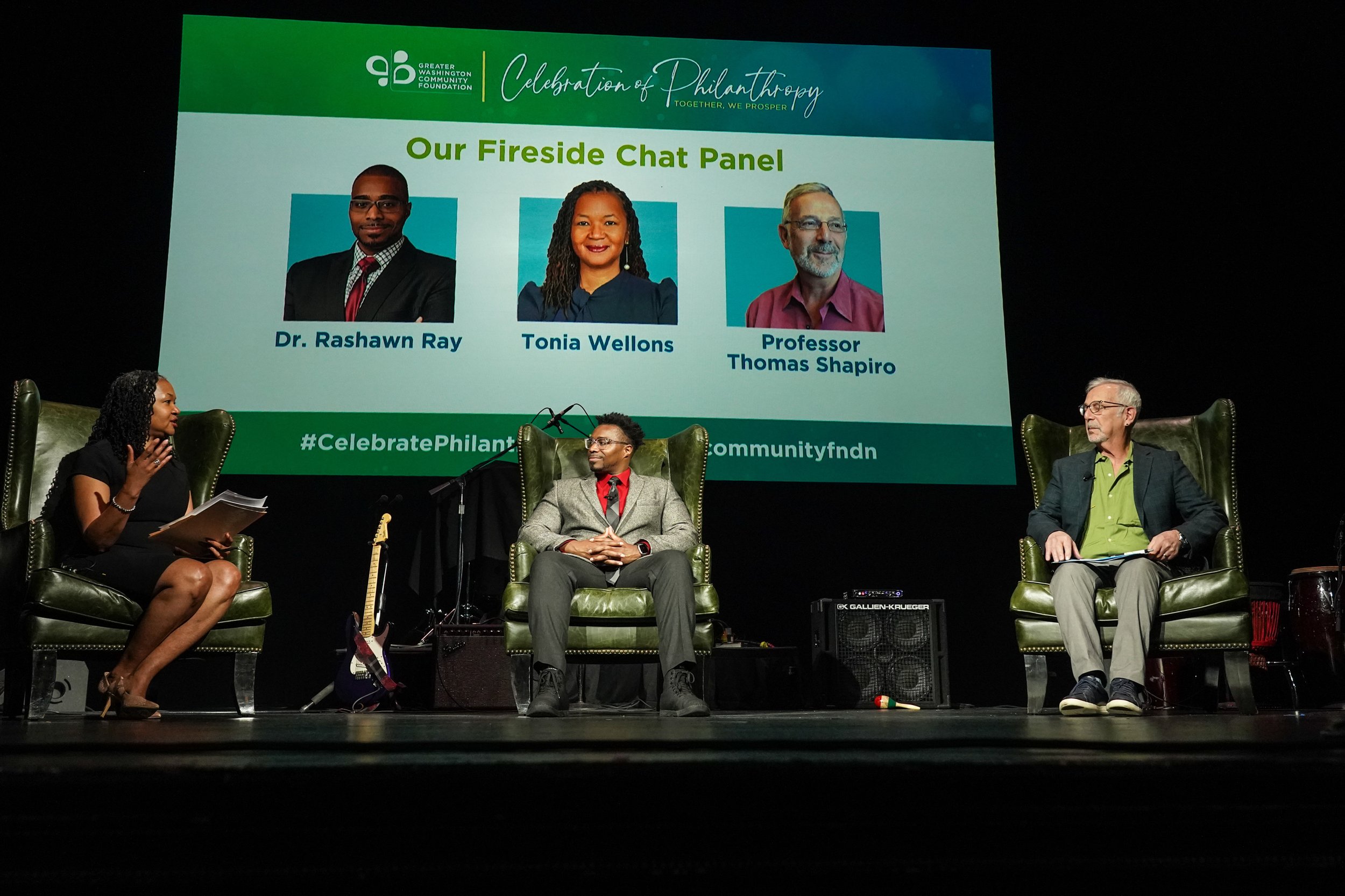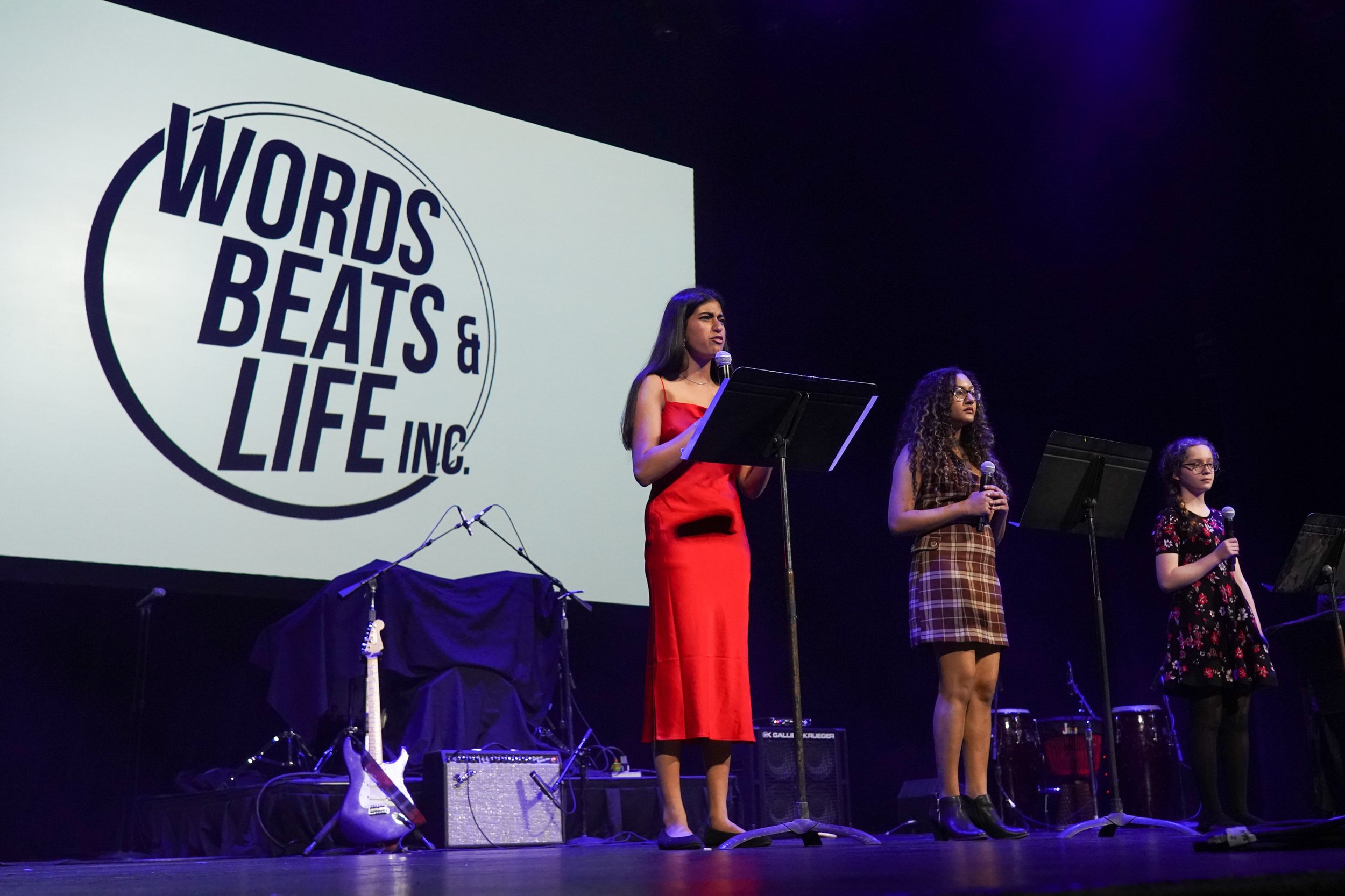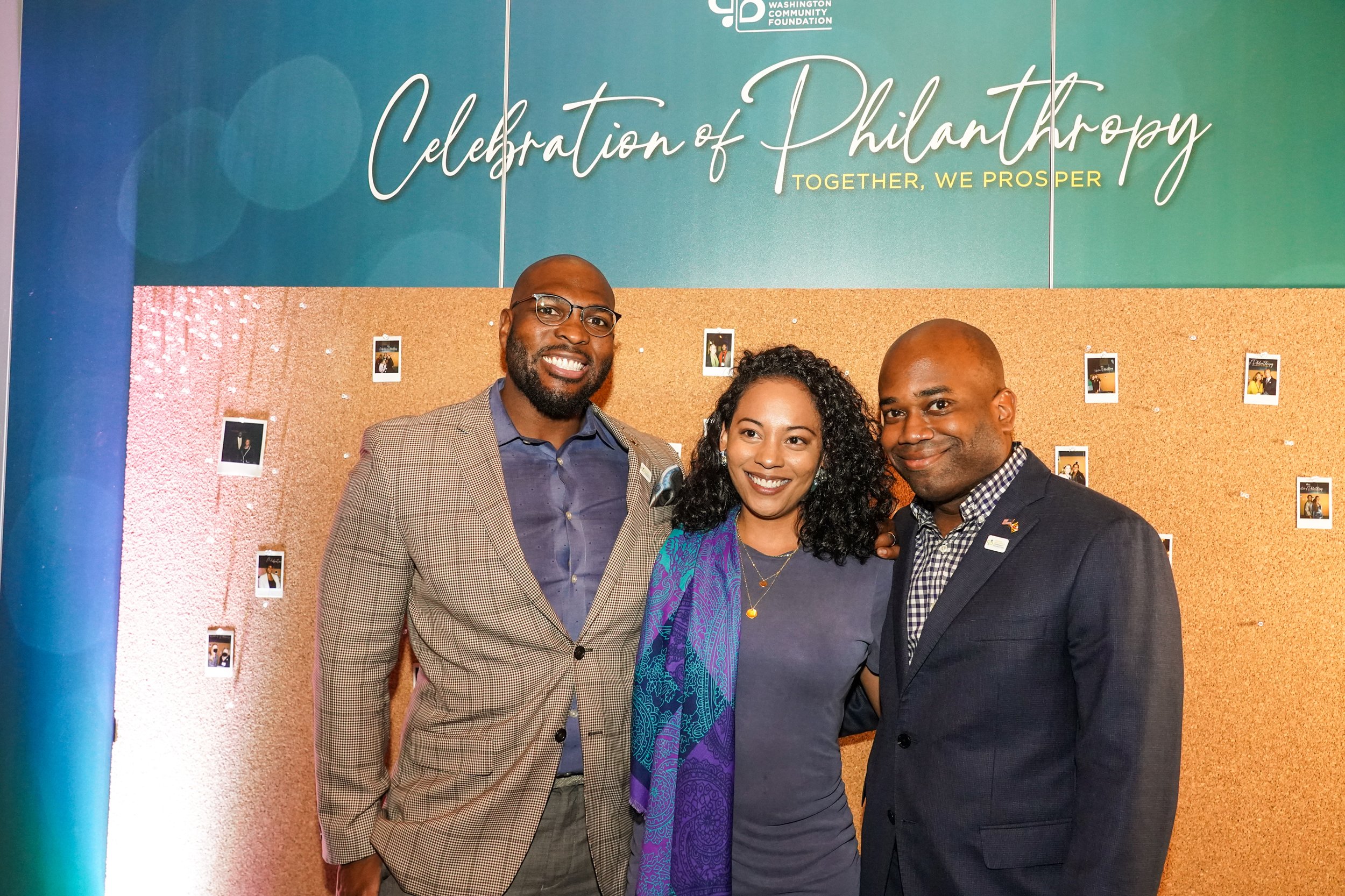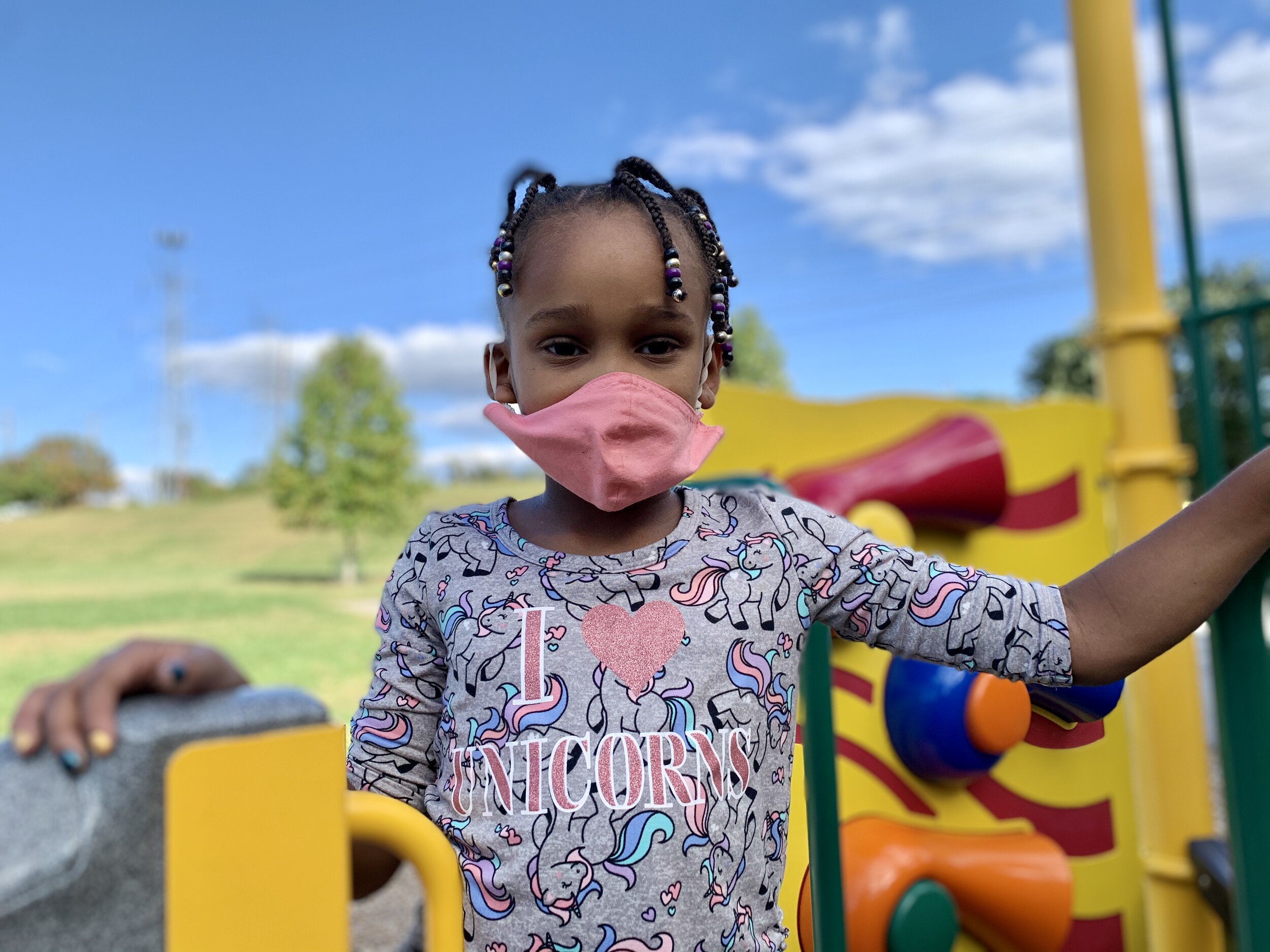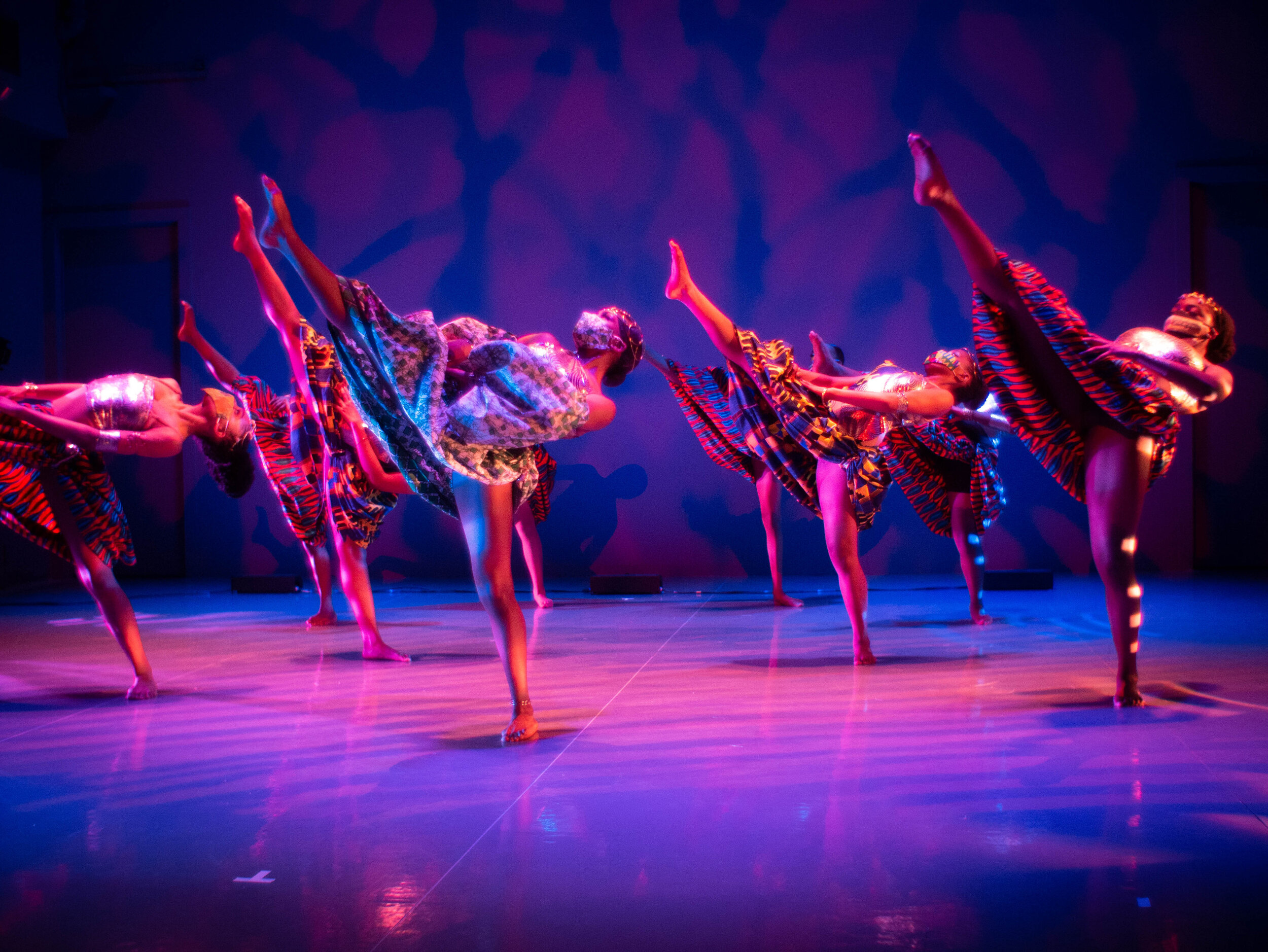Based on remarks from Tonia Wellons, President and CEO, at the 2022 Celebration of Philanthropy on May 4.
As a community foundation, our organization sits at the intersection of racialized wealth and racialized poverty.
From this vantage point, we recognize that our region’s seemingly intractable challenges stem from generations of racial and economic apartheid — a phrase that I don’t use lightly, having worked and lived in South Africa during the immediate post-apartheid era.
This divide — known as the racial wealth gap — manifests itself as segregated housing and neighborhoods, disparities in life expectancy, low wages, unemployment, and high incarceration rates. It presents as over-policing, under-resourced schools, and disinvested neighborhoods.
To be very clear, the systems that should help create opportunities for Black, Latinx, and people of color, instead are fundamentally designed to produce racial and economic disparities. In other words, the problem is not with the people; rather, it is with systems and structures that operate with both implicit and explicit biases — ones that are often reinforced by legislation, policy, and practices.
All of this points to this overarching fact — one that persists in our society: Race Matters.
By almost every measure — education, income, housing, health, and wealth — our community’s Black and Latinx neighbors are lagging behind their White neighbors. Again, this is not the result of individual failure, but rather systemic design.
Our region isn’t unique in facing this challenge. Yet, what sets us apart are the stark inequities, which have led to some of the nation’s wealthiest zip codes being just a short drive from some of its poorest.
As home to the nation’s capital — and all the prestige, influence, wealth, and power it provides — we can and must do better.
We believe that by changing the prospects for how our Black and Brown neighbors generate, sustain, and share wealth, we will ultimately improve the quality of life for everyone who lives, works, and raises a family in this region.
So, when people ask us: What will it take to close the racial wealth gap in our region? Well, our response is this…
Our community needs a vision, strong leadership, and a coalition of the willing who will invest the time in understanding what got us here in the first place; and what it will take to get us out.
This coalition recognizes that quick fixes or simple solutions will only get us but so far; and are willing to do the essential work to mobilize resources and build critical partnerships with community and across public and private sectors to shore up basic needs; and invest in strategies that increase economic mobility — like good jobs, homeownership, and entrepreneurship to name a few.
What are some ways that you can get involved right now? Well, I’m glad that you asked:
Invest in The Community Foundation
Start by becoming an investor in The Community Foundation and our vision for this region. We invite you to make a gift and connect to our work so that we can lean in together on a shared vision for a more just local economy. Align your philanthropy with our vision of closing our community’s racial wealth gap, so that our collective impact is experienced, exponentially.
Embark on a Learning Journey with Us
Become a member of the coalition of the willing by deepening your understanding of the racial wealth gap and what it will take to close it.
Embark on a learning journey with us through a new series we are developing on the racial wealth gap in our region. Join our quarterly book group, as together we discuss and grow together, as a community. We’ll also be launching an exciting new podcast series later this year.
Commit to Racial Equity
Finally, we invite you to take a look at your personal and professional approach to racial equity. What are your company’s requirements for entry-level roles, your vendors, and partners? Who are your contractors, your co-workers, and your talent pipeline? Consider if these things reflect the diversity of this region. If they don’t, these are immediate steps you can take to help achieve a more just economy in our region.
By widening the pool of economic development opportunities to a more diverse set of participants, you can begin to take steps towards closing the racial wealth gap.
Next year, we will come together to celebrate the 50th anniversary of The Community Foundation. For 50 years, we have blazed a trail for philanthropy, partnership, and community impact. I am excited for what the next 50 years might mean for The Community Foundation and the community that we serve.
As we embark on this exciting journey, I invite all of you to see yourselves in our framework for the future of our region. Together, we will continue to build more equitable, just, and thriving communities where everyone prospers.














